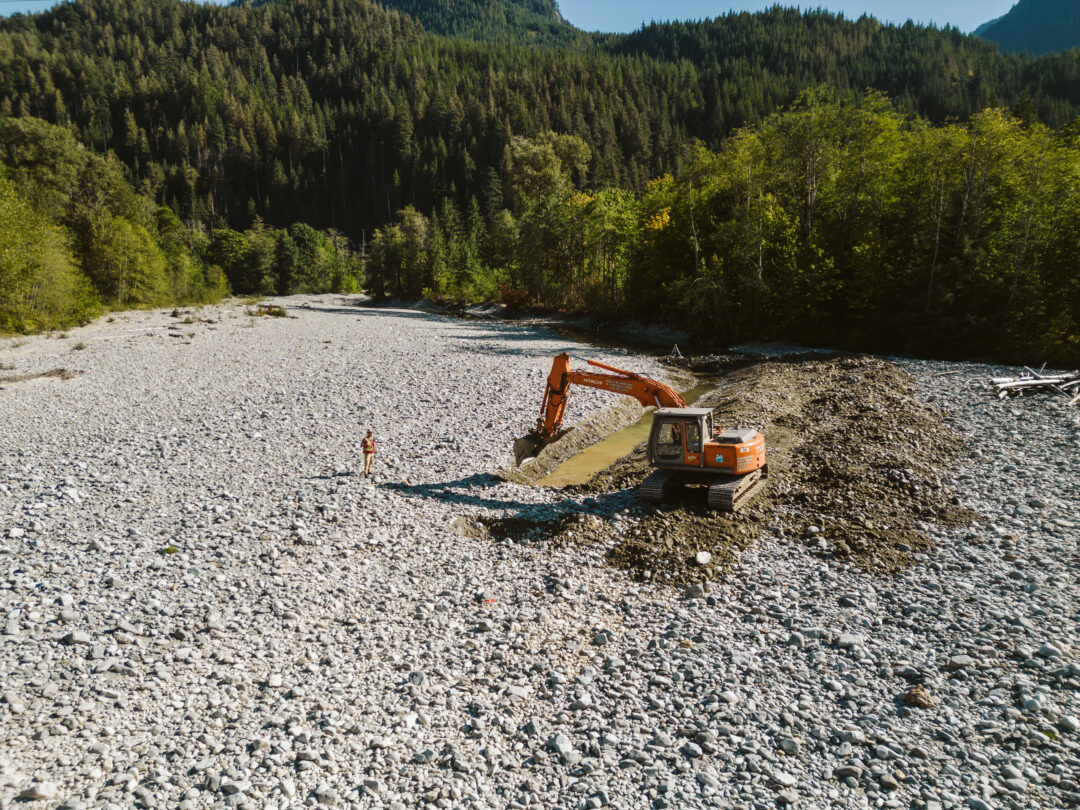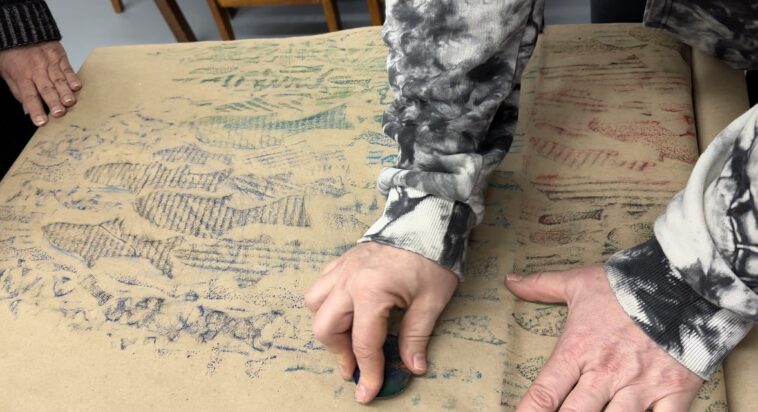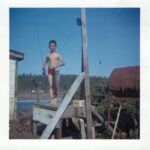A new creative project is bringing to light the staggering number of steelhead and trout lost in the drought-plagued Cowichan River on southern Vancouver Island this past summer. “Project 84,000” is led by Jennifer Shepherd, community researcher with the water sustainability organization Xwulqw’selu Connections. She is coordinating local gatherings across the Island in which residents are encouraged to contribute to a large banner that will display 84,000 colourful crayon rubbings of fish.
The project aims to visualize the immensity of the loss of life, learn from the facts and “grow skills to stay present in ourselves when grief arises while growing bonds of connection and healing in community.” The artwork will eventually be showcased at the Cowichan Valley Arts Council Gallery in Duncan this fall and as part of an outdoor event for World Rivers Day, September 22, 2024.
Shepherd hopes the large public art piece will serve as both a tribute and a catalyst for dialogue about the deaths and the stewardship action we can all take part in. “The enormity of the loss was something that really struck me,” said Shepherd to The Canadian Press. “It felt really tragic and sad to me, and I thought this would be a good idea for us to mark together in the community, for us to really honour and acknowledge.”
The massive fish kill in the Cowichan River was credited by Fisheries and Oceans Canada to “stressful environmental conditions than of a specific cause.” Factors like warming water temperatures and low water flow that contributed to the die-off have also put salmon and trout in increasing danger across the province.

Advocates like Shephard and environmental scientists are already concerned about the severe drought looming over this upcoming summer, which will have immense consequences for fish populations yet again.
BC’s recorded snowpack levels are 37% below the annual average levels, according to the Ministry of Water, Land and Resource Stewardship, which are the lowest numbers in fifty years. Around 40% of the province is already at drought levels three, four or five – five being the maximum and meaning “adverse impacts to socio-economic or ecosystem values are almost certain.”
Drought is very concerning for vital fish habitats, spawning, and migrations warn experts like Tim Morris, Project Director of BC Water Legacy and BC Watershed Security Coalition member. In an interview earlier this spring, he pointed out the threat to our agriculture and our “wild food security” because fish need fresh water levels to be high enough for them to spawn and thrive. Vulnerable Pacific salmon populations “are an essential part of BC’s food security picture, especially for First Nations communities,” he added.
Morris advocates for empowering and investing in local watershed boards, as those most impacted by activities in their watersheds are more likely to make sustainable decisions for the fish and environment.
“Watershed boards promote cooperation by bringing local people together around shared goals for the watersheds they call home,” Morris said. He pointed out exceptional models across the province, like the Cowichan Watershed Board.
“It’s a beautiful river, but it’s more than that. It’s like family… and I think that’s how so many of us feel,” said Tom Rutherford, strategic priorities director for the Cowichan Watershed Board.
“And unless we are able to move the needle to change our behaviour around how we treat our water, how we treat our rivers, how we treat our salmon, if we can’t do that, we’ll lose them. They’ll be gone in 50 years,” he concluded.

For those wanting to take part in Project 84,000, you can look up a local Vancouver Island event on their website here. Upcoming events include a Pre-Event Activity for Cowichan Watershed Board Speaker’s Series (May 13, 2024, from 6:30-7:00 PM); Cowichan Tribes Annual Open House, Si’em Lelum Gymnasium, Duncan (May 15, 2024); Cowichan Valley Climate Solutions Expo, The Hub at Cowichan Station (May 25, 2024); and the Duncan Farmers Market (June 8, 2024).
Crayon donations are welcome; you can drop off new and used crayons at plentiFILL (163 Kenneth Street, Duncan) and the Cowichan Branch of the Vancouver Island Regional Library (2867 James Street, Duncan).
“Water is life, water is our kin, and water is the home and habitat of more than fish. We are all connected, everything is connected,” Shepherd said to the Canadian Press.
“And what might we choose to change in terms of our beliefs, our attitudes, and our actions individually and collectively to preserve the health and wellness of the fish, the water, the watershed and ourselves?” she queried.






